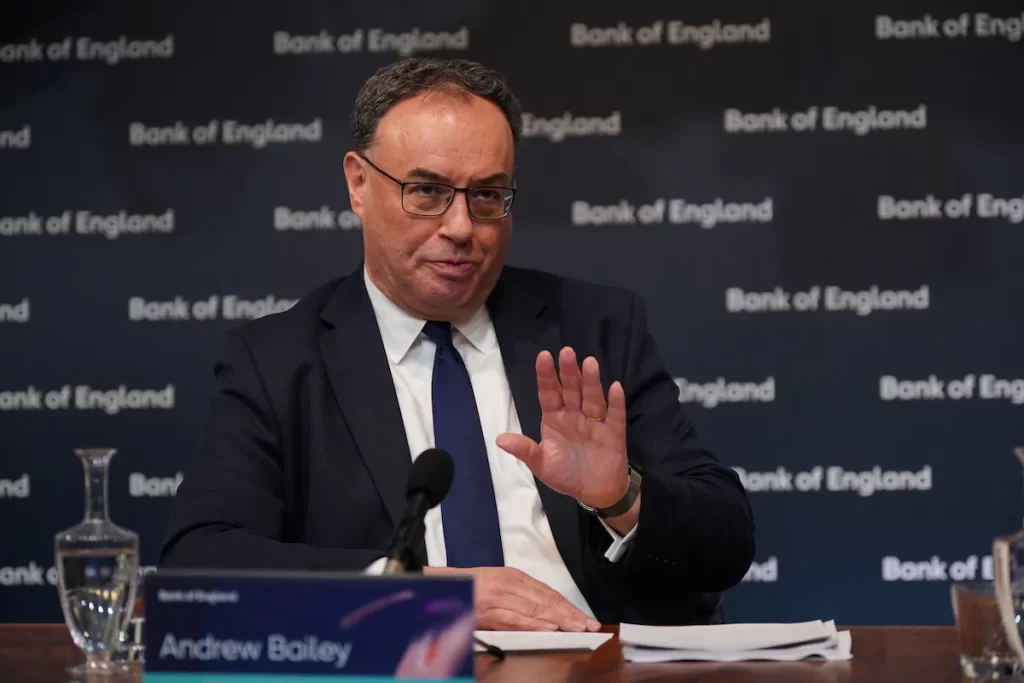Interest rates could fall more quickly, hints Bank
3 min read

The Bank of England may implement faster interest rate cuts if inflation remains under control, as indicated by its governor, Andrew Bailey. In a recent interview with the Guardian, Bailey suggested the Bank could adopt a “bit more aggressive” approach to lowering borrowing costs, depending on inflation trends.
In August, the Bank lowered interest rates from 5.25% to 5%, marking the first reduction in over four years. Bailey expressed optimism about continued decreases in borrowing costs but emphasized that maintaining low inflation is crucial for any future cuts.
The Bank has two more meetings scheduled this year, in November and December, to discuss interest rates. At the September meeting, Bailey’s tone was cautiously optimistic, yet he underscored the importance of keeping inflation in check. Since late 2021, the Bank had been steadily increasing rates in response to a surge in inflation, largely driven by escalating energy prices following Russia’s invasion of Ukraine.
Currently, inflation is nearing the Bank’s 2% target, shifting the focus to how many rate cuts may follow. Reducing interest rates would decrease mortgage payments for households whose loans are tied to the Bank’s rate. However, most mortgage customers hold fixed-rate deals, so immediate effects may not be widespread.
For savers, a decrease in rates typically leads to lower earnings on savings accounts, raising concerns about the impact on household finances. Many analysts now predict that the Bank will announce further rate reductions during its November meeting. Bailey’s recent comments have also led to increased speculation regarding a potential cut in December.
On Thursday morning, the British pound fell nearly 1% against the dollar, trading at $1.317, as market participants adjusted their expectations regarding lower returns on UK assets. This shift indicates a broader sentiment that reduced rates could diminish the appeal of holding cash in the UK.
One critical factor influencing inflation is the ongoing geopolitical tension in the Middle East, particularly the conflict between Israel and the Iran-backed Hezbollah in Lebanon. Bailey remarked on the seriousness of these geopolitical concerns, stating, “It is tragic what’s going on. There are obviously stresses, and the real issue is how they might interact with some still quite stretched markets.”
The price of oil has risen above $76 a barrel this week amid fears of supply disruptions due to the escalating conflict. Despite this increase, current oil prices remain lower than earlier in the year and far below the peaks of over $130 a barrel witnessed shortly after Russia’s invasion of Ukraine in 2022.
Bailey noted, “My sense from all the conversations I have with counterparts in the region is that there is, for the moment, a strong commitment to keep the market stable.” His remarks suggest a cautious optimism about the stability of energy prices amid geopolitical tensions.
The governor was also questioned about former Prime Minister Liz Truss’s claims that her 2022 mini-budget was undermined by the Bank of England and other members of a so-called “deep state.” Bailey responded, “I don’t know what she means by that,” adding that he has never met Truss, who served as Prime Minister for just 49 days.
The aftermath of Truss’s mini-budget saw mortgage rates surge, leading to significant turmoil in financial markets. This upheaval underscored the sensitivity of the economy to changes in fiscal policy, particularly in a climate of rising interest rates.
Looking ahead, the Bank of England is set to announce its next interest rate decision on November 7. With inflation trends and geopolitical developments closely monitored, many will be watching for indications of how aggressively the Bank might move to adjust rates in the coming months. The potential for quicker cuts could have wide-ranging implications for households, savers, and the broader economy, reflecting the delicate balance the Bank must maintain in these uncertain times.